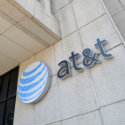
AT&T said Wednesday that it is opening two "5G evolution markets" and building new 5G testbeds, as it pushes to offer 1Gbit/s download speeds on 4G "in some areas" in 2017.
The "5G evolution markets" are in Austin, Texas, and Indianapolis. The first thing to make clear is that these markets are not actually deploying 5G at all, at least not yet. What AT&T is doing is updating its 4G network with LTE-Advanced Pro -- aka 4.5G -- features.
That is clear from AT&T's statement:
We expect our wireless network to offer theoretical peak speeds of 400Mbps or higher. As we continue densifying our network and deploying technologies, like carrier aggregation and LTE-License Assisted Access (LAA), we expect to enable theoretical peak speeds up to 1Gbps in some areas in 2017.
What this means is that AT&T is bonding together separate radio channels to increase the bandwidth available on its 4G LTE networks. It also hopes to add unlicensed spectrum channels into the mix over time, where available, hence the reference to LAA. (See Wireless Companies Unite to Ward Off LTE-U Regulation.)
The "theoretical peak speeds" will remain just that for most users without multi-antenna- and chipset-compatible phones. We don't yet know what kinds of actual speeds these LTE-A Pro updates will deliver in the real world.
For all the latest news on 5G, visit the 5G site here on Light Reading.
Nonetheless, these 4.5G markets are AT&T's stepping stone to 5G-like performance. Verizon Communications Inc. (NYSE: VZ)'s messaging has set 1Gbit/s downloads as the baseline for 5G fixed wireless performance, although many expect far higher speeds in time.
AT&T, meanwhile, is setting up two new 5G testbeds in its labs in Austin, Texas. These will test 5G indoors and outdoors, fixed wireless and DirecTV streaming. AT&T says it will use "multiple vendors" and test "28GHz, 39GHz and sub-6GHz frequency bands." (See AT&T Wants to Start 5G Tests in Austin.)
— Dan Jones, Mobile Editor, Light Reading
About the Author(s)
You May Also Like




_International_Software_Products.jpeg?width=300&auto=webp&quality=80&disable=upscale)







